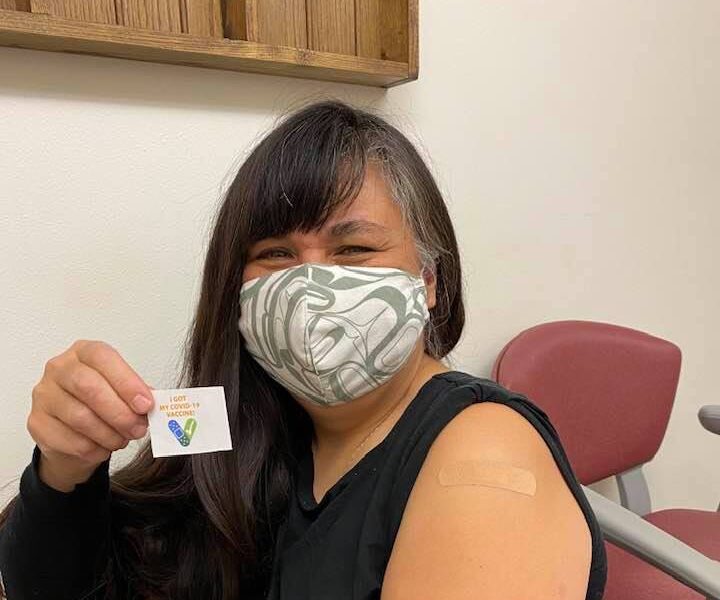This week on Minnesota Native News, we hear from a native medical expert and leader, Dr. Mary Owen, who discusses the importance of the COVID-19 vaccination for the native community.
Dr. Mary Owen, MD (Tlingit) is the President of the Association of American Indian Physicians, and she’s also the Director of the Center of American Indian and Minority Health at the University of Minnesota Medical School, on the Duluth campus.
When I first scheduled a video interview with Dr. Mary Owen, little did I know I’d be interviewing her right after she got the first dose of the COVID-19 vaccine.
“I had to zoom out to the clinic to get my vaccine,” said Dr. Owen, “you know, it was really surprising. It, I felt it less than I do the flu shot hardly noticed it actually. And I’m not just saying that, it was really painless.”
Dr. Owen is working on getting the message out to the native community on why taking the vaccine is so important.
“I recognized that there is going to be a huge need in our communities because of the potential for vaccine hesitancy, just like in African-American communities, our communities have, naturally, so much distrust of government and health institutions,” said Dr. Owen.
Dr. Owen and the Association of American Indian Physicians put together a task force with the purpose of getting the message out, whether it be through the airwaves or through social media. She says native medical students have also been asked to spread the message.
Part of the task force’s job has been producing a series of videos explaining the importance of the vaccine.
“The videos themselves are really short. Mine was a little bit longer, a minute and 30 seconds to kick it off with just why we’re doing them and the why is that; we are dying at far higher rates than any other population. When you look at the age adjustments, including African-Americans. and it’s not a competition at all – just to emphasize why we need this and it’s not the first time it’s happened. We had the same thing happen with H1N1, when we died at four times the rate of non-natives. COVID is different. It’s killing even more of us and therefore we need a drastic response to it and we need people to buy into these vaccines.” said Dr. Owen
She says that, while the data is still coming in, it appears that the federal government has indeed recognized the impact the virus has had on the native population, and vaccines are getting to elders and health care workers in those communities.
However, she says there’s still a lot of work to do to get the overall native population to buy-in to the vaccine, especially those on the younger side.
“What I worry about is the next wave… you know, young people who tend to feel, I remember myself feeling invincible, like this doesn’t really affect me, and it’s a two-step vaccine. That’s the other piece. You don’t get the heavier coverage until you get that second shot. So that also gets in the way of the protections. You know, when we already have people who struggle sometimes to get into the clinic, to get the first shot, but then to have to get that second one,” she said.
So, the work goes on.
” We can’t afford to lose people, particularly at this time when we’re finally, we really seem to be gaining in strength. More people want to know about us and are, are willing to listen to the history that they haven’t been willing to listen to before, or if they haven’t been willing to that they haven’t heard in they’re actually going out and seeking it on their own. So it’s a good time for us to push forward, not to move backwards by by dying off from a disease,” said Dr. Owen.
After getting the vaccine, Dr. Mary Owen says wearing a mask is still important. While the vaccines have been proven to be about 95% effective in preventing serious illness from COVID-19, it’s unclear how well they curb the spread of COVID-19. So, for now, health experts are still recommending wearing a mask after vaccination until more is known and more people are vaccinated.
As a note, Owen had A LOT more to say. She talked more on addressing medical distrust within the native community, her personal experiences as a physician and what inspired her to help her community. You can hear more from her on the latest episode of Native Lights: Where Indigenous Voices Shine.
Cole Premo reporting for Minnesota Native News


 Native Lights – Special Edition: Visiting Vaccines with Dr. Mary Owen and Briana Michels
Native Lights – Special Edition: Visiting Vaccines with Dr. Mary Owen and Briana Michels